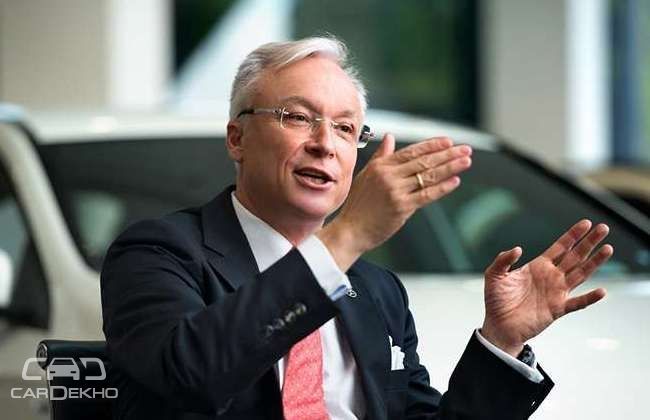
In 2015, German automaker Mercedes-Benz had a very good year, as it was able to supersede Audi as India's largest luxury automaker and now with the 2016 Union budget fast approaching, we entered in an exclusive conversation with Roland Folger, Managing Director and CEO of Mercedes-Benz India, as he shared his expectations and views on the upcoming budget.
Q. Overall what do you think is the industry sentiment with respect to budget 2016?
The auto sector being a policy dependent sector, is hoping that the Finance Minister will create a sustainable environment for business, with stable policies, enabling a long-term growth path for the industry which in turns leads to creation of employment as well as the deployment of the latest technology. We also expect the implementation of the earlier announcements made by the government, especially towards infrastructural spends that often have cascading effects on the automotive industry.
Q. What are your expectations from the Union Budget 2016?
We would like the government to stress upon infrastructure spending which will be beneficial to the economy in general and the auto sector in particular, in the long run.
Reforms related to the auto sectors such as the rationalization of the existing duty structure, fast implementation of the much awaited goods and services tax (GST) etc., introducing a planned scrappage policy for older and polluting vehicles, will give further boost the auto sector while benefitting the ecology and economy.
The government has always emphasized on the ease of doing business and making in India. Now we look forward to a long-term sustained growth path, that will ensure that we can plan our future expansion and remain encouraged to introduce new technologies and products for the end customers. In addition, this will also enable further job creation in the automotive industry.
Q. What are the top 3 things you would like to see from the Union Budget 2016-17 that would favourably impact the auto industry?
Rationalization of the existing duty structure for the luxury automotive industry, which remains largely restricted to a mere 1.3% of the total passenger vehicle market in India. Reforms in the duty structure would infuse growth in the luxury automotive sector.
Increased spending on infrastructure, building roads and highways, urban development, which we believe will stimulate economic growth.
Focus on creating a stable policy environment, to enable automotive players to plan their growth path, always keeping the ecology and the economy (job creation) in mind.
Q. What are the learnings government should take from the 2015 budget?
The budget for 2015 was the first step towards reforms taken by the NDA Government. It was hailed as a progressive budget by market experts. The big announcement was on the implementation of GST getting implemented in 2016, that the business community has been waiting for since a long time.
The focus should remain on faster implementation of announced projects in 2015 budget.
Q. According to you what will be the excise duty for SUVs, will it increase, decrease or remain same?
It is always viable to have a decrease in the excise duty, as that would lead to affordability of luxury cars, i.e. the base widens on which excise is levied. Hence, with a reduced excise duty, more luxury cars are purchase over-compensating the drop in excise duty.
Q. According to a recent CarDekho survey, 70% of car buyers would be interested in hybrid vehicles if relevant sops are extended for them. What would be your plans to cater to latent demand for "Green"vehicles?
Globally, Mercedes-Benz has a diverse portfolio of hybrid and electric vehicles. We believe the Indian market is still some years away from being completely ready for electric vehicles, mainly due to the lack of infrastructure and incentives. As such, we have to create a sustainable infrastructure to support electric vehicles to ply on our roads.
We would be happy to introduce such ‘Green Vehicles’ from our portfolio, if the infrastructure is available and there is a spurt in the demand.
As we mentioned before, we are ready (as a first step) to switch our fleet to EU6 as early as 2018 provided that the fuel is sufficiently available.
Saying that, hybrid vehicles are the way for future mobility, even in India.
Recommended Read: Volvo Expects New Opportunities from the Upcoming 2016 Union Budget


